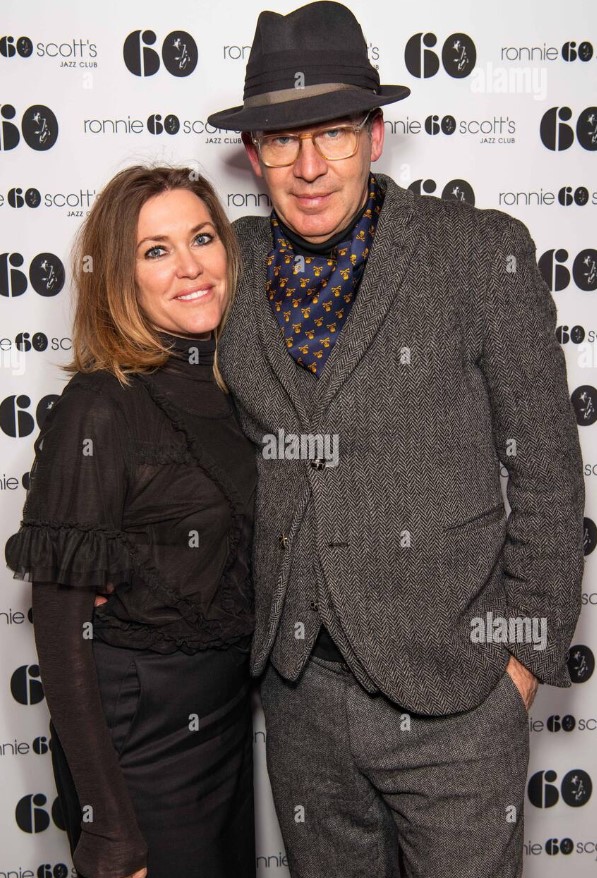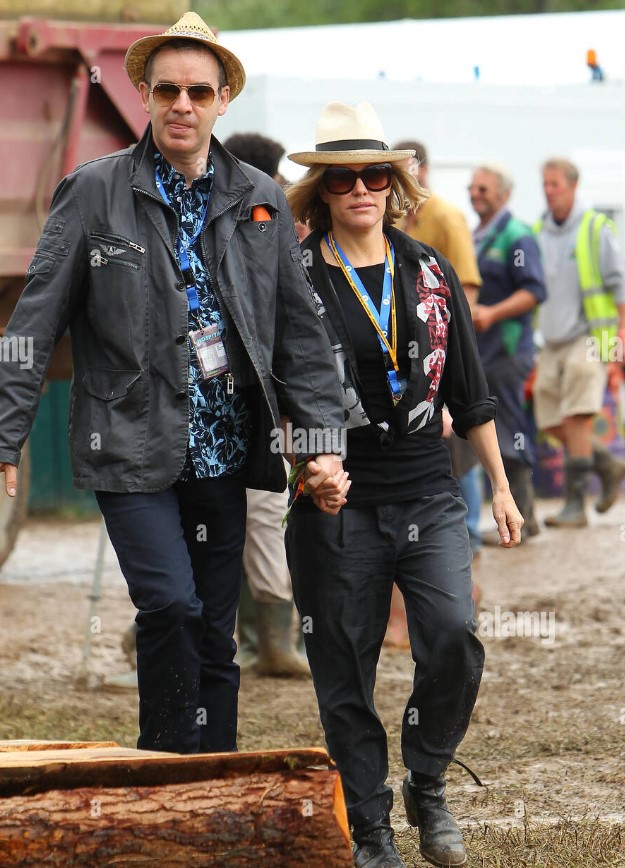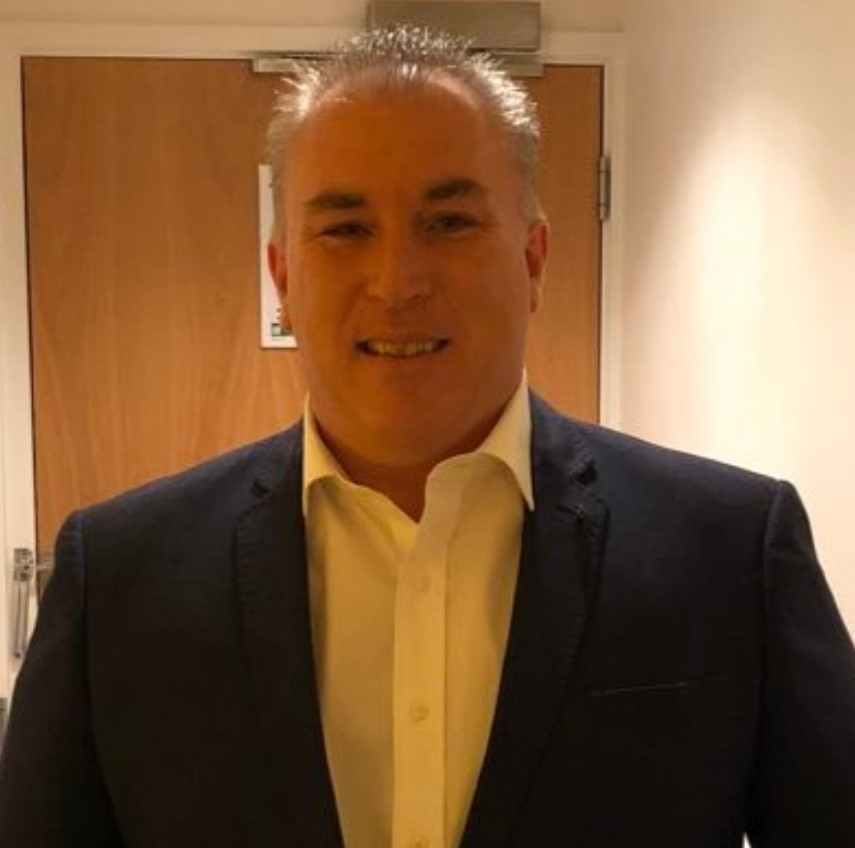Steve Abbott’s details like Fan Mail Address, Phone Number, Autograph request, and mailing address are shared here. Are you a follower of Steve Abbott? Are you searching on search engines for How to contact Steve Abbott? What is the phone number, Texting number, contact number of Steve Abbott’s Manager, or his personal contact number? What is the email id of Steve Abbott?
Are you looking for what is the official fan mail address of Steve Abbott? Who are Steve Abbott’s contact agency and manager? To reach him, you’ll need to find his public Facebook, Twitter, and Instagram profiles. Steve Abbott’s fan mail address, contact details, and authorized social media profiles are all included in this section.

Abbott spent his formative years in the 1960s on the Farley Hill Estate in Luton, where he later attended Rotherham High School and Luton VIth Form College, where he met future bandmates and, in 1978, became the band’s guitarist. Abbott trained and performed improv at the Second City in Chicago after studying under Vincent Chase at UCLA.
Throughout his career, Steve has been featured in a wide variety of advertisements and voice-overs. His ability to switch between comedy and drama has kept him on the road all throughout the United States. Writer, editor, activist, author, and gay parent of one: Author based in San Francisco This anthology serves as a fitting tribute to Steve Abbott, who had a wide range of interests, hobbies, and talents. During his lifetime, Abbott was best known for his prolific review writing and editing of the magazine Soup.
It was in these pages that he popularized the term “New Narrative” to designate a loosely knit, generally Bay Area-based group of writers who merged theory and gossip, “high” and “low” culture, radical politics, and queer sex. After Abbott’s untimely death from AIDS-related problems in 1992, his published works, including poetry collections, essays, and novels, refused to return to publication. Alysia, his daughter, wrote a memoir about her childhood with her father titled Fairyland, which was released in 2013 and has since been optioned by Sofia Coppola.
In a touching afterword to this collection, Alysia Abbott, “the age of 48, as old as he will ever be,” reflects on her father’s legacy. Kevin Killian, a good friend of Steve Abbott’s and his literary executor, has also done great work to ensure that Abbott’s work will be read and enjoyed by future generations. Sadly, Killian passed away just before the book came out; Peter Gizzi paid him a touching tribute in last year’s Chicago Review.

Steve Abbott, a Catholic by upbringing, was born in Nebraska during the war. At the University of Nebraska–Lincoln, he was active in Students for a Democratic Society (SDS), wrote for the school literary magazine, hosted a reading by Allen Ginsberg, and won a civil trial after being charged with draft evasion as a conscientious objector during the Vietnam War.
After finishing college, Abbott spent some time as a novice in the Benedictine order before leaving in disgust at the spiritual corruption he found there. After taking some time away from school, he returned to academia to pursue a doctorate in psychology at Emory. Here he met his future wife, Barbara Binder. Despite the fact that Barbara gave birth to Alysia in 1970, the pair remained open and Abbott came out as bisexual shortly after their wedding, taking the title of “Gay Lib Editor” at the alternative daily The Great Speckled Bird.
Abbott’s life was in disarray after he broke up with his partner; he was abusing drugs and Barbara was going to have him committed when she was killed in a car accident in 1973. Abbott says, “Barb’s death shook me out of my lunacy; I realized I’d have to quit being crazy if I wanted to maintain Alysia.” Whether I didn’t try, I’d never know if I couldn’t. In a way, Alyssa and I were each other’s only hope for survival. A year later, Abbott followed Alysia to San Francisco.

In 1980, he founded the micro-publication Soup, where he flourished as an editor, writer, and poet-cartoonist. In addition to serving as the managing editor of the poetry magazine Poetry Flash and contributing to a wide variety of other periodicals, Abbott would go on to publish four issues, each of which would become a seminal record in the development of the New Narrative.
Abbott’s contributions to journalism and the essay genre are among his most recognizable works. Abbott tirelessly promoted the works of his colleagues and contemporaries, including those of Dennis Cooper, Armistead Maupin, Diamanda Galás, and Odilon Redon, many of which were compiled in the 1989 book View Askew: Postmodern Investigations. In late 1988 or early 1989, Abbott was diagnosed with HIV, but this did not stop him from writing until his death in 1992.
Robert Glück, a close friend of Abbott’s, describes him as “a tireless community builder.” Of particular note is his work as a co-organizer, alongside Glück and Bruce Boone, of the 1981 Left/Write conference, which brought together numerous Bay Area writing and activist communities with a leftist political perspective. A major turning point in New Narrative’s history began here. Abbott, like many unselfish organizers, put the needs of others before his own, as seen by Killian’s description of him as “the sparkplug that every scene depends on without, maybe, realizing just how much it needs him” in the introduction to Writers Who Love Too Much.
Abbott’s work as an editor and organizer, as well as the often dramatic and extraordinary circumstances of his life, as recounted in Fairyland and in his own autobiographical writing, should not overshadow our appreciation of his own writing. There are three primary themes throughout Abbott’s work. His poems range from sestinas and rhymed sonnets to what can be called “spontaneous bop prosody” in the vein of Jack Kerouac. The political cartoons of his colleagues S. Clay Wilson and Robert Crumb in Zap Comix have impacted his own artwork, which he has converted into a new genre he calls the “poem cartoon.”
Still, Abbott’s writings are his most significant contributions to the world. Abbott’s work hasn’t been published in nearly two decades, but Beautiful Aliens covers his entire career. Editor Jamie Townsend, mindful of the fact that this is a “Reader” and not a “Collected,” provides generous but judicious selections from Abbott’s longer works, giving them room to breathe without pretending completeness and, following Abbott’s own practice, giving equal weight to Abbott’s fiction, poetry, and nonfiction.
Steve Abbott Contact Information
Here you can find his contact data, including his fan mail address, address details, email id, residential address, house address, place of birth, phone number, contact number, email id, physical address, booking agent data, and manager/secretary contact information.
Fan Mail Address:
Steve Abbott
CESD Talent Agency
10635 Santa Monica Blvd.
Suite 130/135
Los Angeles, CA 90025-8306
USA
Address Information:
CESD Talent Agency
(Talent Agency)
10635 Santa Monica Blvd.
Suite 130/135
Los Angeles, CA 90025-8306
USA
Appropriately, the collection kicks out with Abbott’s most famous piece, Lives of the Poets, which was first published in 1987 as part of Boone and Glück’s Black Star Series. Text collages that appear to be mostly found in text or paraphrased choices from biographies and autobiographies, from Lady Murasaki to Elvis, Rimbaud to Jane Goodall, are hinted at on the cover and are present throughout the book.
Abbott explores the meaning of writing life, writing itself, and life itself with a tremendous wit and charm that belies the gravity of the work’s purpose. “I read biographies,” he says. Celebrity and artistic geniuses’ struggles give me comfort. A dewdrop has more destiny than any song could. In just a few pages, we see X’s life transform from anguish to brilliance, and then, with death, we see how nicely everything is wrapped up.

Steve and Alysia are dressed in incredibly chic Southern Gothic mourning attire for the book’s cover. This is grief as a performance, with the poet playing the role of a movie star, gay pinup, and bereaved spouse. Abbott says in an uncollected poem for Joe Mauser, “All the books we read lie,” and he was concerned with unearthing lies like these, including but not limited to the lies of American heteropatriarchy, imperialism, and white supremacy, and the self-deceptions and self-inventions with which we negotiate our place in the everyday world we call “real life.”
However, the essays are the book’s crowning achievement in my opinion. Abbott was a prolific reviewer, a master not so much of the quip as of the one-sentence depiction of a poet’s or theorist’s work that reaches home—gut ache, gut punch, the seed of wrath, or tear in the eye. Abbott states, “Most of my writing is published in obscure periodicals,” in the unpublished “Passing Strangers.” The history of rubber stamp art fascinates me, as does avant-garde poetry, television ads, and scary movies. I’m looking to network with like-minded people. This quote shows that Abbott enjoyed penning his thoughts on whatever topic struck his fancy.
(1)Full Name: Steve Abbott
(2)Born: 28 July 1954 (age 68 years), Bradford, United Kingdom
(3)Father: Walter Abbott
(4)Mother: Evelyn Abbott
(5)Brother: NA
(6)Spouse: Amy Abbott
(7)Occupation: Comedian, Author
(8)Famous As: Comedian, Author
(9)Birth Sign: Aries
(10)Nationality: Australian
(11)Height: 5 Feet 10 Inches
(12)Religion: Christianity
(13)School: NA
(14)College/University: University of Newcastle
(15)Educational Qualifications: Graduate
(16)Hometown: Bradford, United Kingdom
(17)Address: Bradford, United Kingdom
(18)Hobbies: NA
(19)Contact Number: (310) 475-2111
(20)Email ID: NA
(21)Facebook: https://www.facebook.com/steabbot/
(22)Twitter: https://mobile.twitter.com/abbottsm
Abbott’s “connections” are not haphazard, however, because they stem from a deep well of ethical, political, and sexual concerns that underpin all of his writing and are faithfully rendered in light of his own personal experience. Abbott’s work is replete with allusions to the contemporary classics of Left theory, many of which he covered in a series of fifteen theory seminars he taught at Small Press Traffic. Despite this, you won’t feel like you’re name-dropping; instead, your knowledge will be displayed casually, and every example you give will add to the flow of your writing.
In fact, one of the takeaways from this book is how Abbott’s writing steadfastly rejected both genre classification and author fetishization. His stylistic explorations are not limited to the subversive forms of avant-garde novels and poetry; they also manifest in his frequently self-referential journalism. Originally published in the San Francisco Sentinel, “Visiting Stonestown” begins as a piece of “gonzo” journalism before criticizing its “hype of caricature and ego-inflation,” in which “as image piled on picture, a joke on the joke, we whirl into an infinite vortex.” After some thought, Abbott says, “I don’t want that anymore.

The author acknowledges that the “Confessional” is nothing if not a mode of performance, despite the occasionally shocking directness of his autobiographical admissions, echoing the observation of fellow New Narrative author Dodie Bellamy. Abbott can acquire Ginsberg’s Whitmanesque wide-eyed optimism, but he rejects Ginsberg’s bardic excesses.
Despite the prevalence of drugs and sex in his poetry, he avoids the Beat romanticization of the poète and the junkie lifestyle. Even though he believes in socialism deeply, he is wary of the political ideal of a unified society. Abbott’s work, regardless of form, can be read as a quest to discover the full complexity of the Real; an honest record of a life that, as he says in an article on Bob Kaufman, should be understood in the context of “alternative communities” rather than “personal legend”; a record for the milieu from which his writing emerged and which it encouraged, and the communal aspirations toward writing and life that were fostered there.
Read Also: Paula Abdul Fan Mail Address, Phone Number, Texting Number and Contact Details